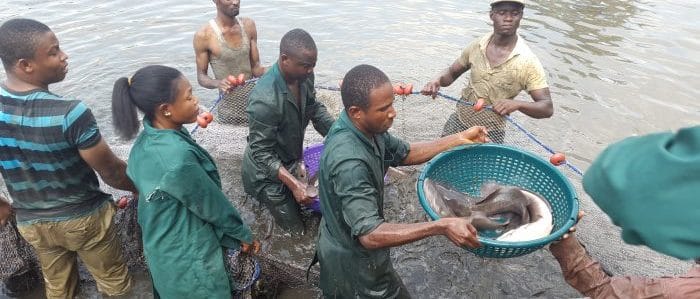
The myriad of opportunities in agricultural value chains and the existence of untapped resources, particularly young people, can provide the much needed impetus to drive the next wave of development in Africa.
To bring about the development of new agribusinesses, it is imperative to change the mindset of young men and women. They must see agriculture as an attractive profession. Most young people in Africa still think agriculture is an unprofitable and outdated sector that requires much hard work. Agriculture needs their energy and skills to add value to the sector and turn it into a vibrant, successful and fully commercial enterprise.
In this expert contribution, Dr Nteranya Sanginga stresses the need for an enabling environment that will create business opportunities along agricultural value chains and provide decent employment for the millions of unemployed youth in Africa. Dr Sanginga was one of the speakers at the panel discussion on jobs for women and young people, co-hosted by INCLUDE, at the Annual Meeting of the African Development Bank in Lusaka, Zambia on 23 May 2016.
IITA Youth Agripreneurs
The experiences of the IITA Youth Agripreneurs show that changing the perception of agriculture can inspire young people to become agricultural entrepreneurs. It can lead a graduate of history to become the best maize grower in northern Nigeria and a graduate of communication and media studies to become one of the most lucrative catfish farmers in Ibadan, Nigeria.
Given the right opportunities, this change in mindset can help to transform agriculture, driving productivity growth and job creation. Part of this involves providing young people with opportunities to see how agriculture can work for them through educational visits and tours to successful agribusiness enterprises.
Skills and business training
Another key element for successful job creation in agribusiness is capacity development in agricultural techniques and business enterprise. Training and skills development in modern farming, agricultural-based entrepreneurship and marketing are essential to ensure the integration of young women and men in agriculture. A new programme supported by the African Development Bank called ENABLE Youth is establishing incubation centres to allow young people to learn and exchange practical ideas on things like keeping accounts, new farming techniques, opportunities in agricultural value chains such as seed trading, food processing and weather forecasting, as well as insurance, leadership skills, and sales and marketing. Establishing agribusiness incubation centres is a viable mechanism for nurturing youth-led start-ups. The Youth-to-Youth approach to experiential learning will help ensure participation during the incubation period.
Capacity-building and an enabling policy environment
Institutional and financial support from both private and public sectors stakeholders is also essential. Loans and grants, mentoring, information campaigns to raise awareness and an enabling policy environment for thriving agribusiness will help maximize opportunities for young people. Strengthening their capacities and facilitating their access to productive resources will drive broad-based growth and increase agricultural productivity.
Creating network opportunities
Youth networking behaviour will be formalized and expanded under the ENABLE Programme in Nigeria to establish a network for knowledge management and sharing experiences. This will be based largely on social media and internet sites, and facilitate the rapid exchange and adaptation of essential information resources. Every Agripreneur group will maintain an accessible site (e.g. on Facebook) with a central project website. As more Agripreneur groups are formed, it will become cheaper for them to meet and share information through exchange visits and combined activities.
Technical backstopping, monitoring and evaluation to keep track of the challenges, progress and successes made during business incubation will give the young entrepreneurs insights into the challenges of running their own agribusiness enterprise. But there is no magic wand to ensure the success of this approach. All stakeholders – governments, international organizations, the private sector, civil society, social groups and parents – have a crucial stake in the success of job creation in agribusiness.










